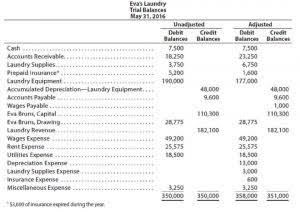
In this context, an outstanding check need not be outstanding for long; it may simply be the short period of time between when a check is mailed and when it is received. Outstanding checks are checks written by a company, but the checks have not cleared the bank account. It’s important to note that any failure or delay in addressing issues related to outstanding checks can exacerbate existing legal risks. By ensuring prompt identification and resolution of such issues, organizations can safeguard their compliance with relevant regulations and protect themselves from potential legal ramifications. You’re not alone understanding outstanding checks and how to stay clear of their risks is essential for anyone managing their finances.
- When the check reaches this expiration date, it is no longer valid, and the bank the check was written from may not honor the payment.
- In a bank reconciliation the outstanding checks are a deduction from the bank balance (or balance per the bank statement).
- It’s possible that the bank could also decline to honor the outstanding check, as well.
- Bouncing an outstanding check can lead to financial consequences, such as fees imposed by the bank, damage to your credit rating, and potential legal actions from the payee.
- The funds have been earmarked to be deducted from their bank account, even though the actual cash hasn’t been withdrawn yet.
Outstanding Business Checks
- However, this doesn’t always solve the problem, as it costs a fee to the payor and is only valid for a limited time.
- However, if your budget is handled appropriately and all checks are marked as pending, you’ll know not to spend that money.
- The issuer has accounted for the reduction in their bank account balance, but the actual decrease will not occur until the recipient cashes the check and the bank clears it.
- If you have an outstanding check, you should first follow up with the payee to ensure that they received it and have not lost or misplaced it.
- Regardless of the nature of the error, it is important to address it promptly to avoid any potential consequences.
Adhering to these practices enhances financial control and transparency, reduces errors, and promotes efficient cash flow management. In summary, tracking outstanding checks is vital for businesses to maintain accurate financial records, manage cash flow effectively, and prevent discrepancies. By diligently monitoring and reconciling outstanding checks, companies https://www.bookstime.com/ can make informed financial decisions and ensure their financial stability and success. When a company issues a check, it reduces the balance in its bank account by the amount of the check. However, until the payee presents the check to the bank and the bank debits the company’s account for the corresponding payment, the check is considered outstanding.

What is Outstanding Check: Its Definition and Risks
However, until the recipient cashes the check, the bank statement will not reflect this transaction. This lag can lead to a misrepresentation of the actual available funds, which, if not accounted for, may result in erroneous financial decisions or reports. Remember, identifying outstanding checks requires regular monitoring and consistent record-keeping. It is crucial to maintain accurate and up-to-date financial records to ensure that outstanding checks are promptly identified and resolved. By implementing these practices, businesses can effectively manage outstanding checks and maintain accurate cash flow records. In the world of accounting, an outstanding check refers to a check that has been issued by a company but has not yet been presented to the bank for payment.
Banking With SoFi

It is important for companies to keep track of outstanding checks in order to maintain accurate financial records and ensure that the cash balance reflects the true amount of funds available. In conclusion, a proactive approach to managing outstanding checks is essential for businesses to maintain accurate financial records and ensure smooth cash flow. By implementing these best practices, businesses can effectively manage outstanding checks, maintain accurate financial records, and ensure smooth cash flow.
A few years ago, an international scam involving over $25 million worth of uncashed cheques that were supposedly meant for Nigerian pensioners gained public attention. The scandal alerted businesses globally to be cautious while issuing checks and ensuring prompt follow-up on uncashed ones. When a check is written, it serves as a promise of payment from the issuer to the recipient. However, until the check is presented to the bank and the funds are transferred, it remains an outstanding check. In simpler terms, it is like a ticket that has been purchased but has not yet been used to enter the event.
How To Find The Effective Date Of Health Insurance
Remember, staying informed and staying on top of your financial transactions is key to maintaining a smooth financial journey. Proactive measures are the most effective way to mitigate the challenges posed by outstanding checks. Instituting a policy of regular communication with payees can preempt issues of checks remaining uncashed.
- Checks which have been written, but have not yet cleared the bank on which they were drawn.
- Voiding a check usually occurs when there is an error or when a check needs to be cancelled for any reason, such as a payment dispute or a duplicate payment.
- By doing so, you ensure that your organization continues its mission while minimizing exposure to legal liabilities arising from non-compliance with relevant rules and regulations.
- Reconciling outstanding checks involves verifying deposits, investigating discrepancies, and updating the check register accordingly.
- If you are unable to contact the payee or if they have not yet deposited or cashed the check, you should document the transaction and monitor your account closely to ensure that it is eventually cleared.
- • One of the major ones is that it bounces by the time an attempt is made to deposit it.
What Are Some Best Practices for Managing and Clearing Outstanding Checks?
During the communication process, it is important to keep a record of all correspondence. This includes noting down the date, time, and content of each interaction with the bank. By maintaining a log of these conversations, individuals can refer back to it if needed and ensure that there is a clear and documented trail of their efforts to resolve the outstanding checks. Outstanding checks are not bad per se, but it’s generally wise to promptly deposit or cash checks so that they do not expire. Checks that remain outstanding beyond a certain time frame could become void, so if you hold such a check, you might be out of luck if you then wish to deposit it. Also, outstanding checks can make it hard to determine an account’s available balance, which can lead to bounced checks and overdraft charges.

Once the check is deposited by PaperMills Co. and cleared by the bank on August 2, 2023, it is no longer considered outstanding. The bank statement balance and the company’s book balance will now align, assuming there are no other discrepancies. Sometimes, it is simply a matter of bad timing that leads to a check being labeled as outstanding. For example, if a check is deposited shortly before the account holder’s funds are scheduled to be transferred or deposited, it may result in a delay in processing. This delay can cause the check to appear as outstanding, even though the necessary funds are available. An outstanding check represents a payment that has been written but not yet cleared by the bank.
Get up to $300 when you bank with SoFi.
It is crucial to promptly address and resolve outstanding checks to prevent damage to one’s credit history. Gain a comprehensive understanding of outstanding checks, including their , reasons, potential outstanding checks issued to vendors meaning , and effective resolution methods through communication, tracking, and the reconciliation process. An outstanding check is when the payee neglects to cash or deposit a check (or the check gets lost).